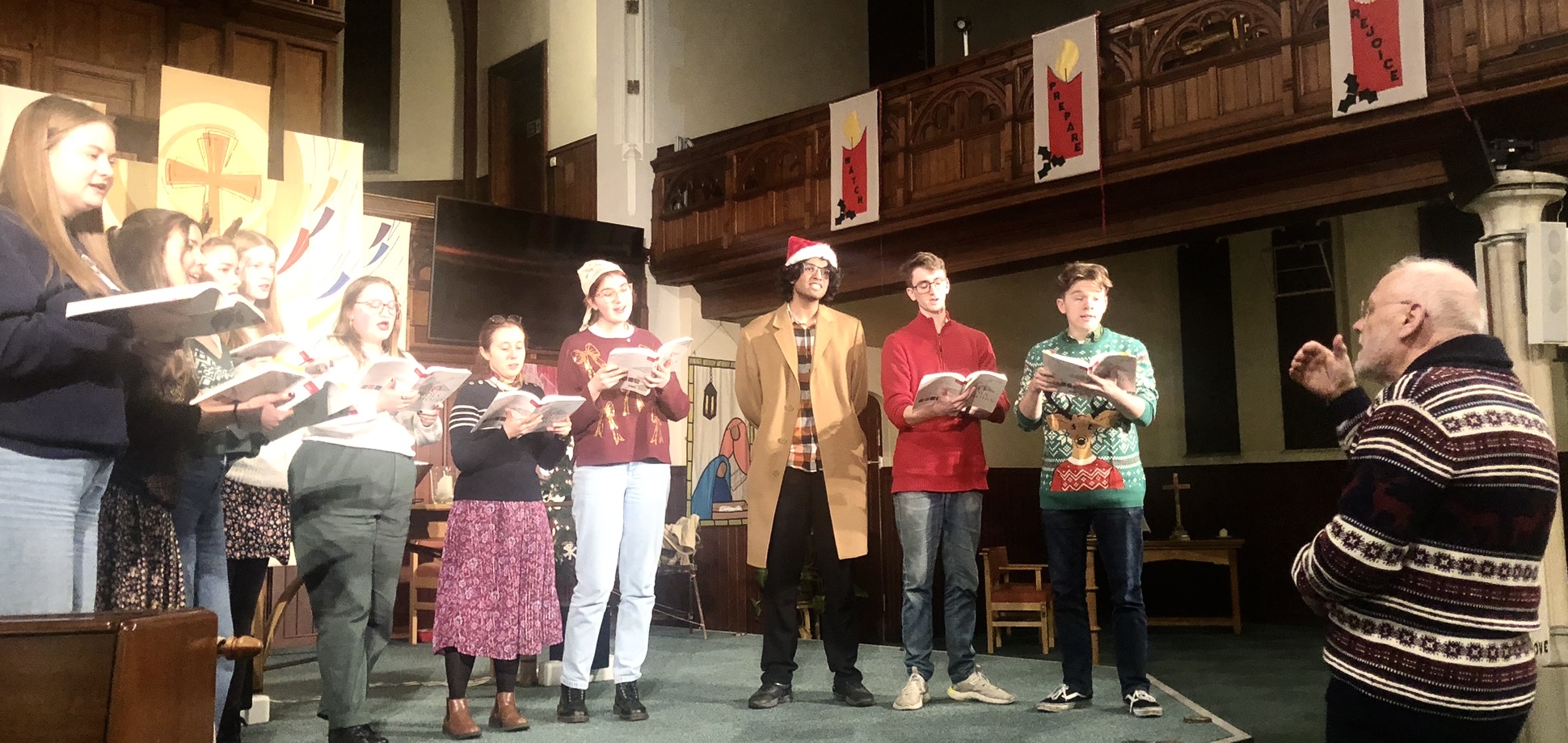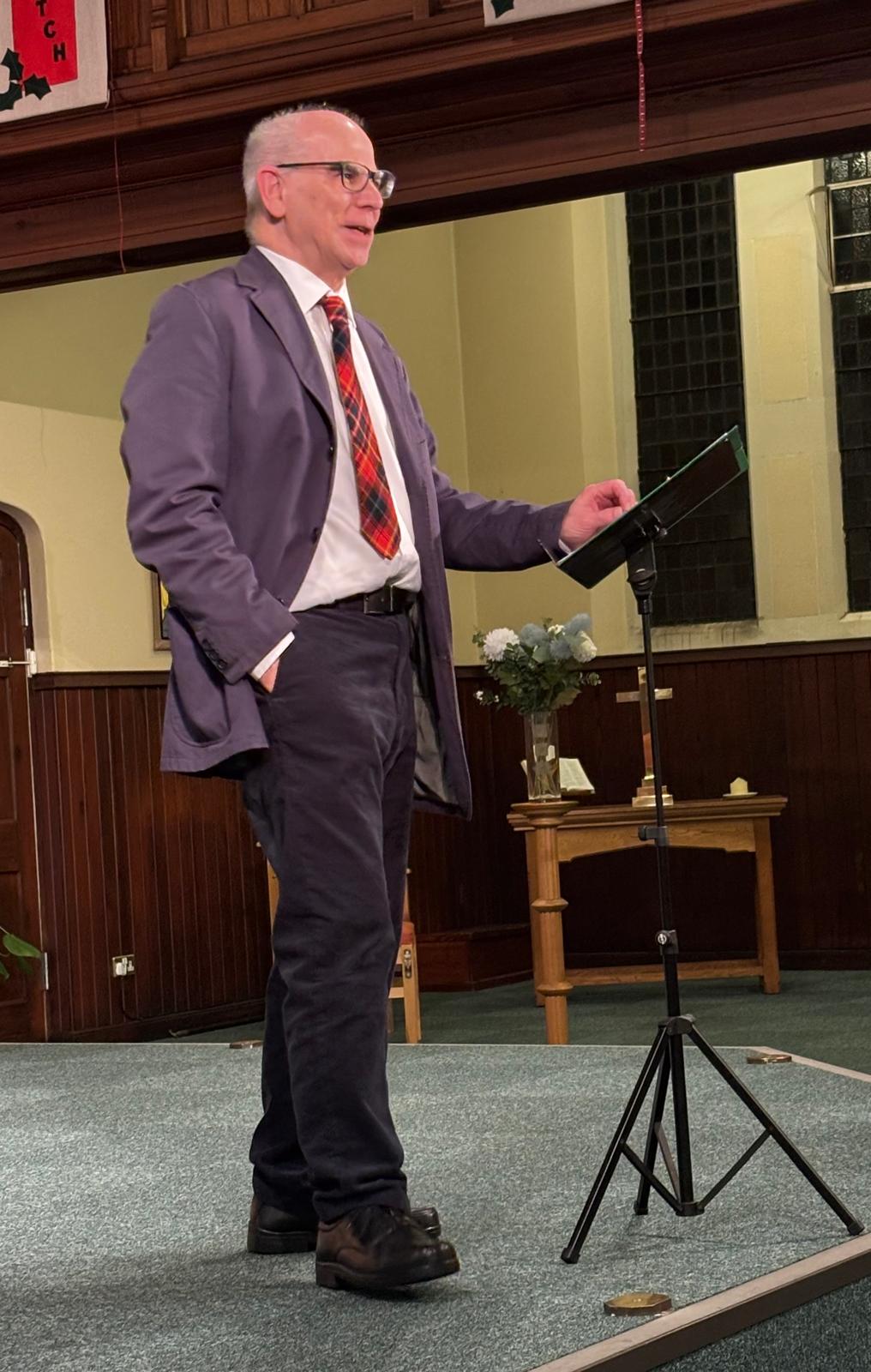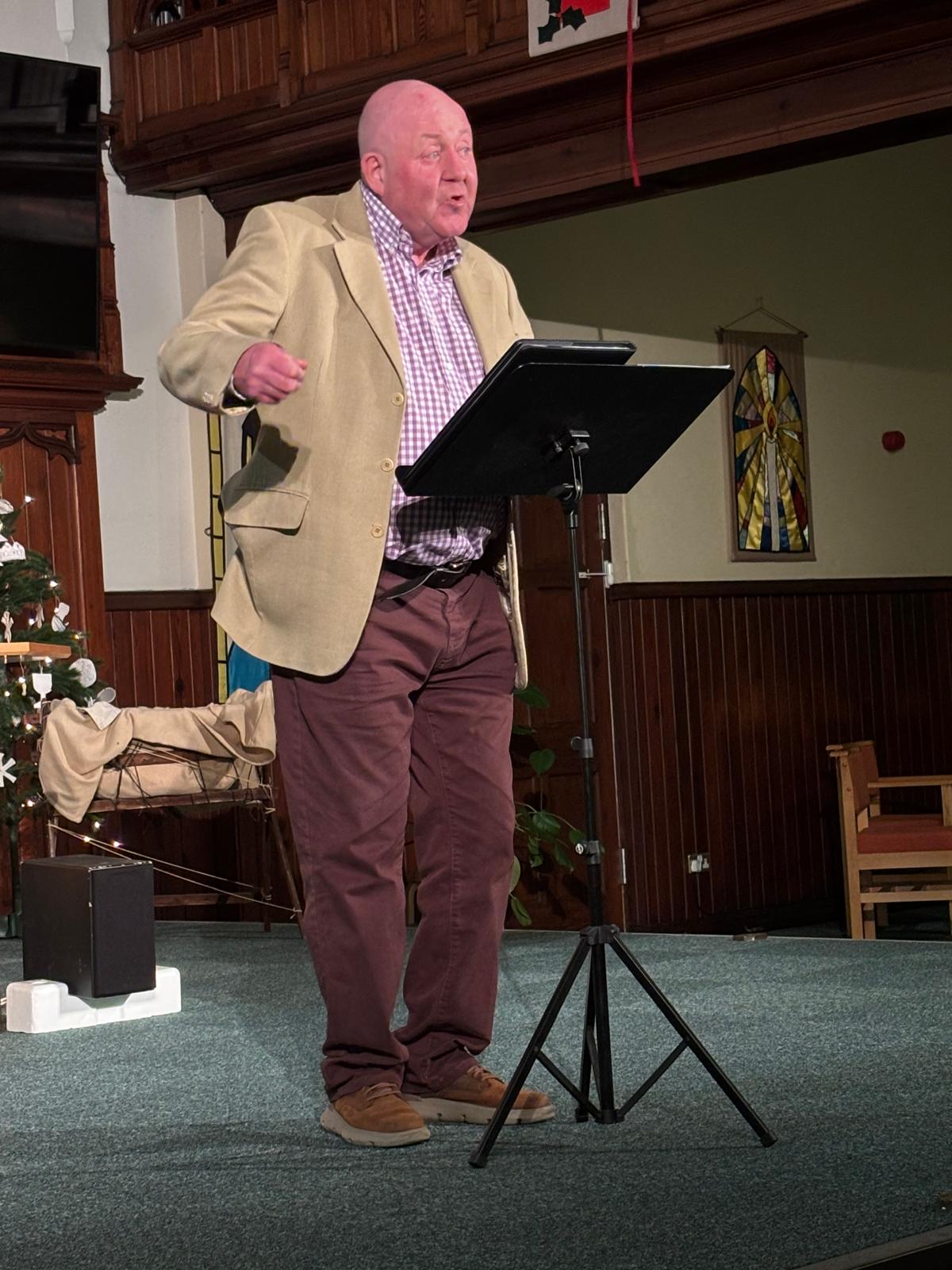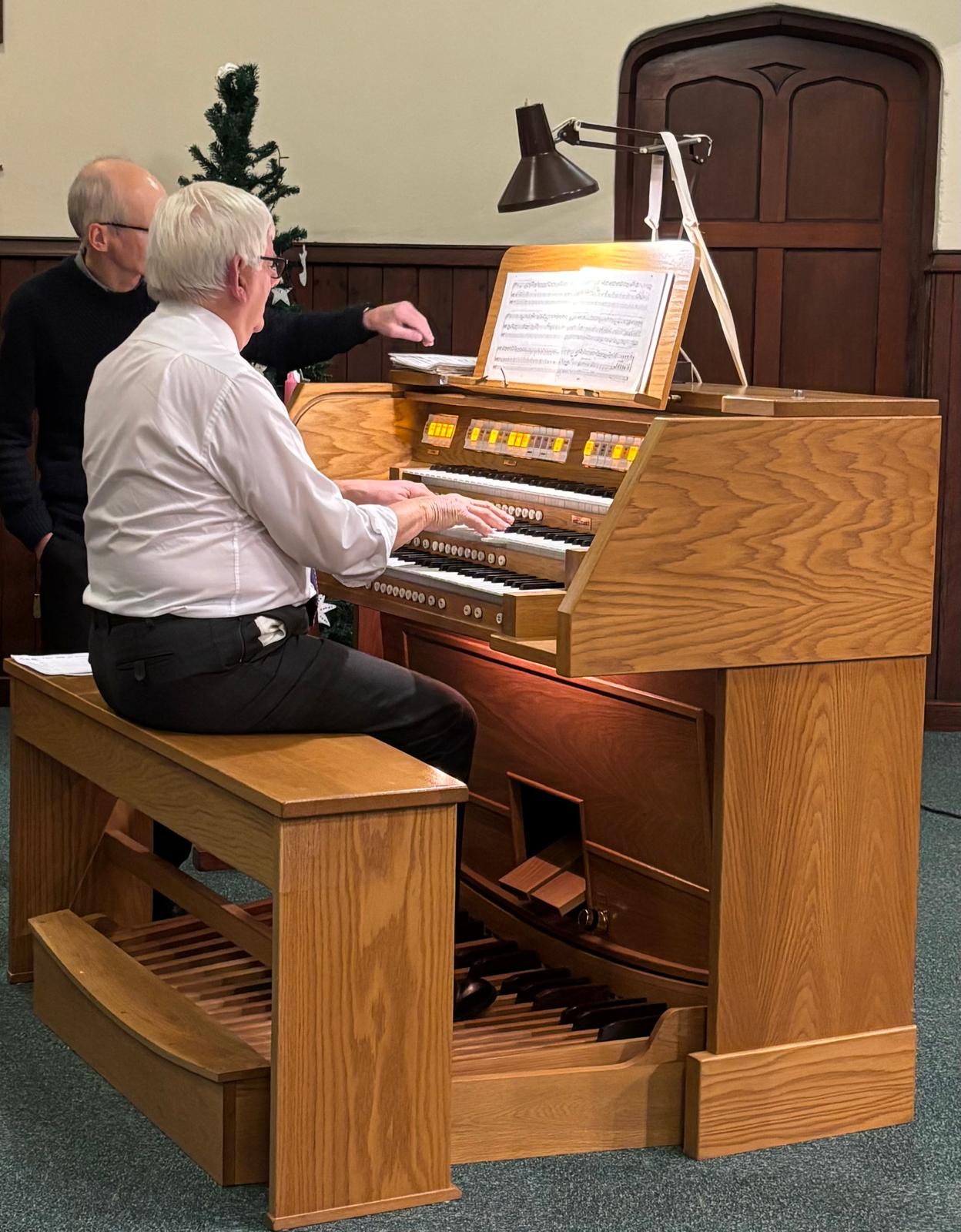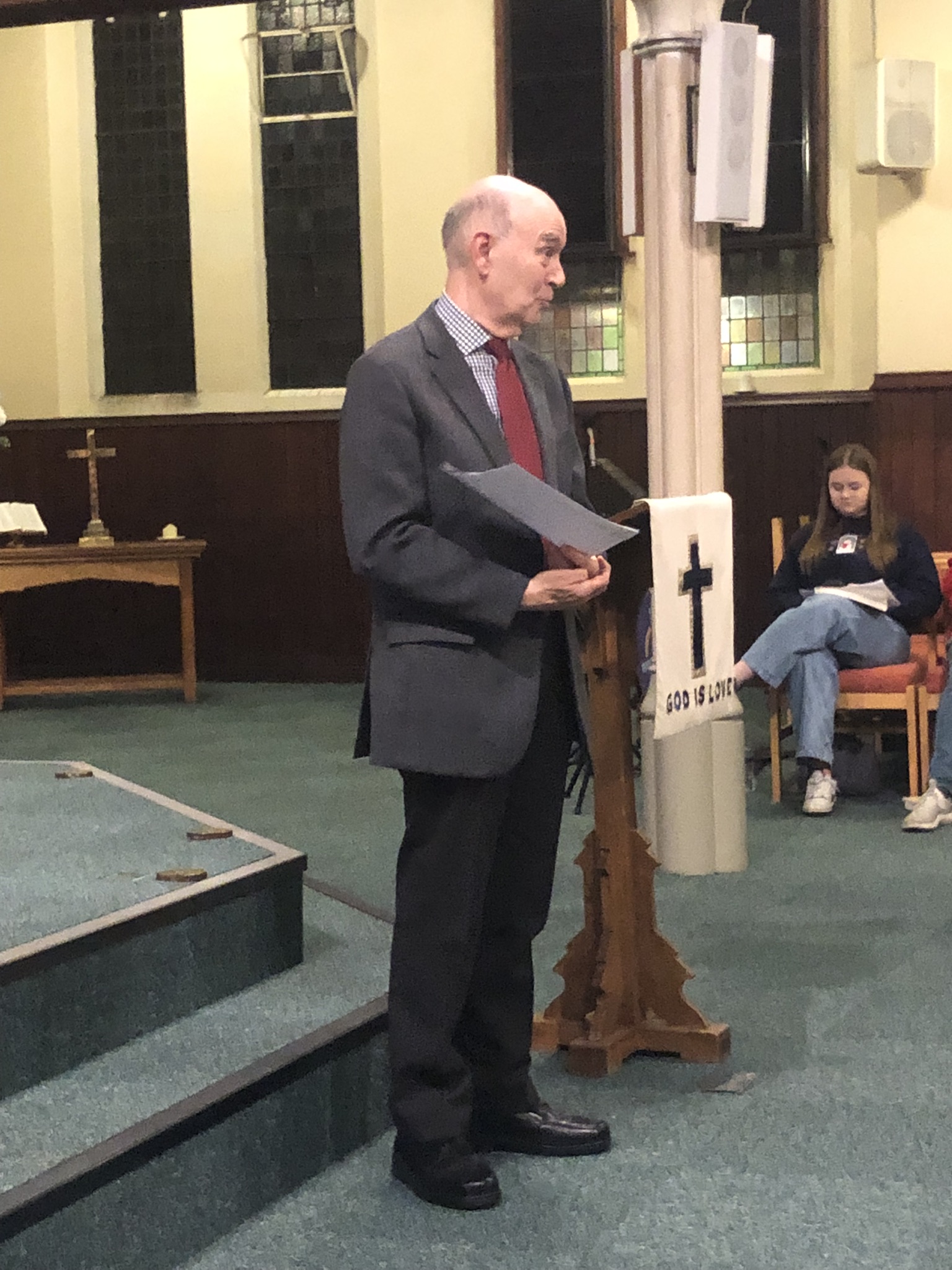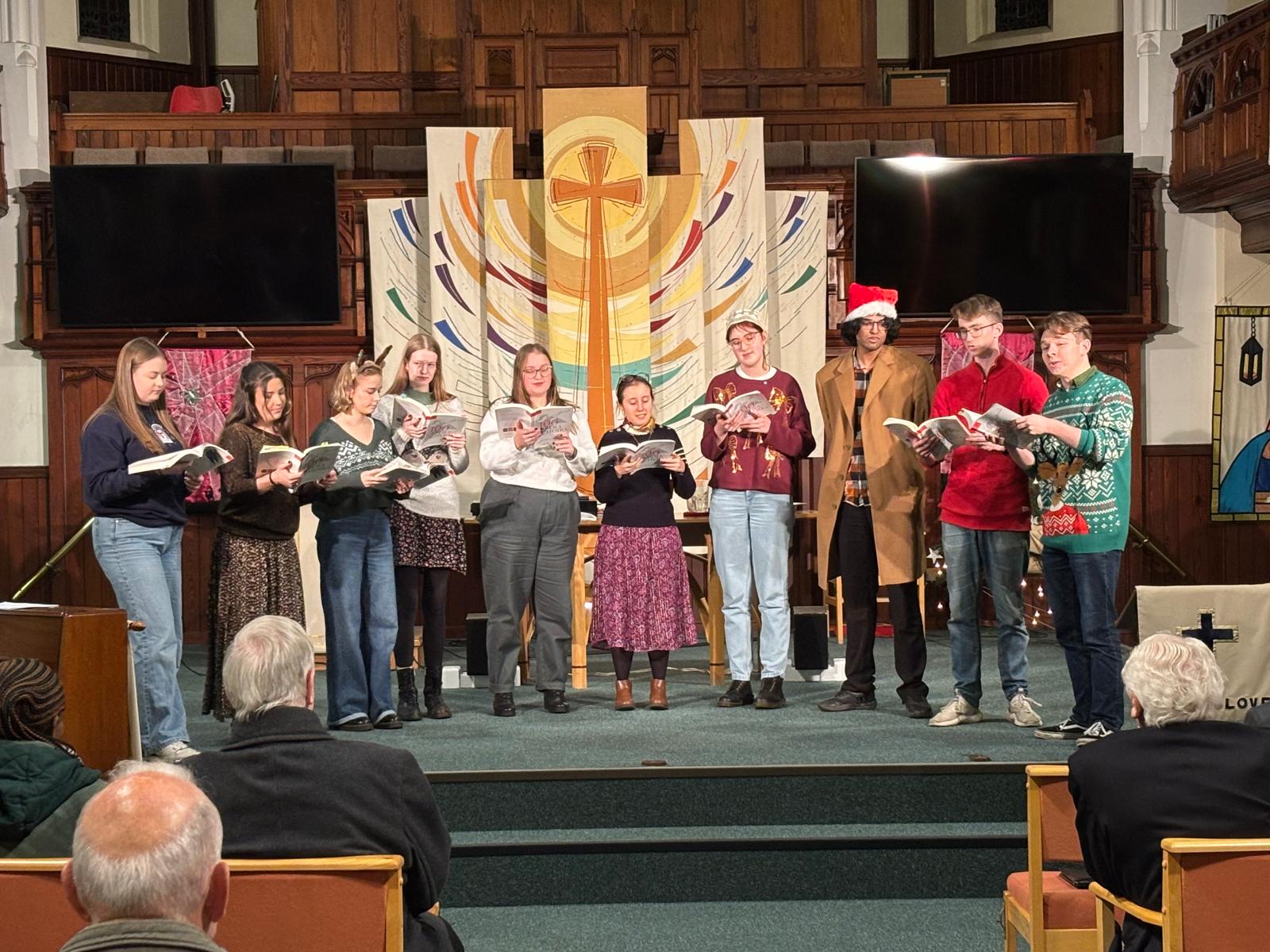The Computer's First Christmas Card by Edwin
Morgan
Morgan (1920–2010) was the last survivor of the 'big seven' Scottish poets
of the 20th Century. He wrote in English, not Scots, and used a wide variety of
styles from sonnet to concrete poetry. He also translated from many languages,
and his translation of Beowulf has been the standard text in America. In 2004
Morgan was appointed the very first Makar, the Scottish equivalent of Poet
Lauriate, and he kept the post until his death in 2010.
The Computer's First Christmas Card was written in 1968, at a time when
computers were first beginning to impinge on public consciousness, and when Ron
Mitchell was typing up his first programs on punched cards. It's a lovely
example of concrete poetry, where the layout on the page is an important part of
the work. The computer spouts a stream of Christmassy adjectives and nouns,
trying to come up with an appropriate greeting—which it gets wrong.
In these days of scary AI it's a salutory and humerous reminder that these are
just silly machines.
The Burning Babe by Robert
Southwell
The writer beholds a vision of a new-born baby in flames, suffering agonies in
the fire, which, says the babe, is to work 'man's defiled souls...to their
good'. Finally, the vision vanishes…
And straight I callèd unto mind that it was Christmas Day.
Robert Southwell was an English Catholic priest of the Jesuit Order. He was
an author of Christian poetry in Elizabethan English and a clandestine
missionary in Elizabethan England. After being arrested and imprisoned in 1592
and intermittently tortured and questioned, Southwell was eventually tried and
convicted of high treason. He was hanged at Tyburn in 1595. Friendly onlookers
tugged at his legs to make sure he was dead before the executioner could inflict
the grizzly remainder of the sentence. He was canonised by Pope Paul VI in 1970.
There is some evidence that Shakespeare knew Southwell's poetry. And Ben Jonson
certainly did; he remarked in a letter, 'so he had written that piece of
Southwell's [The Burning Babe], he would have been content to destroy many of
his [own]'.
A Christmas Carol by Tom
Lehrer
Lehrer explains that his carol is the only one to celebrate the true meaning
of Christmas in America, money. You can hear him sing it on
youTube.
The Coming of the Magi by TS
Eliot
This poem was first published by Faber and Faber between 1927 and 1931 in a series of
illustrated pamphlets entitled Ariel Poems containing works by various poets.
The first few lines of the poem are enclosed in inverted commas:
‘A cold coming we had of it,
Just the worst time of the year
For a journey, and such a long journey:
The ways deep and the weather sharp,
The very dead of winter.’
Why just these lines? The poem continues as if the same person is speaking. The
answer is that the lines are lifted almost verbatim from a sermon preached in
1622 by the English bishop Lancelot
Andrewes:
A cold coming they had of it at this time of the year, just the worst time of
the year to take a journey, and specially a long journey. The ways deep, the
weather sharp, the days short, the sun farthest off, in solstitio brumali,
‘the very dead of winter.’
Andrewes
was a favourite of King James the I and VI, who was said to have slept with a
copy of Andrewes' sermons under his pillow. Andrewes also supervised the King
James translation of the bible.
Eliot wrote the poem in the year he was baptised into the Anglican Church. He
revered the sermons and other writings of Andrewes; indeed one of Eliot's
collections of essays is entitled For Lancelot
Andrewes. Here is
his essay on Andrewes, published
in the Times Literary Supplement in 1926.
We were delighted to welcome ten members of the LUCC, who gave us both excellent ensemble singing and splendid solo performances. See the programme, above, for details.


